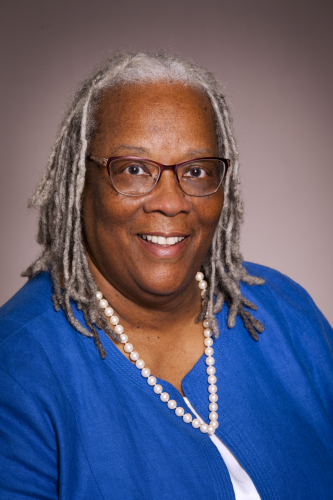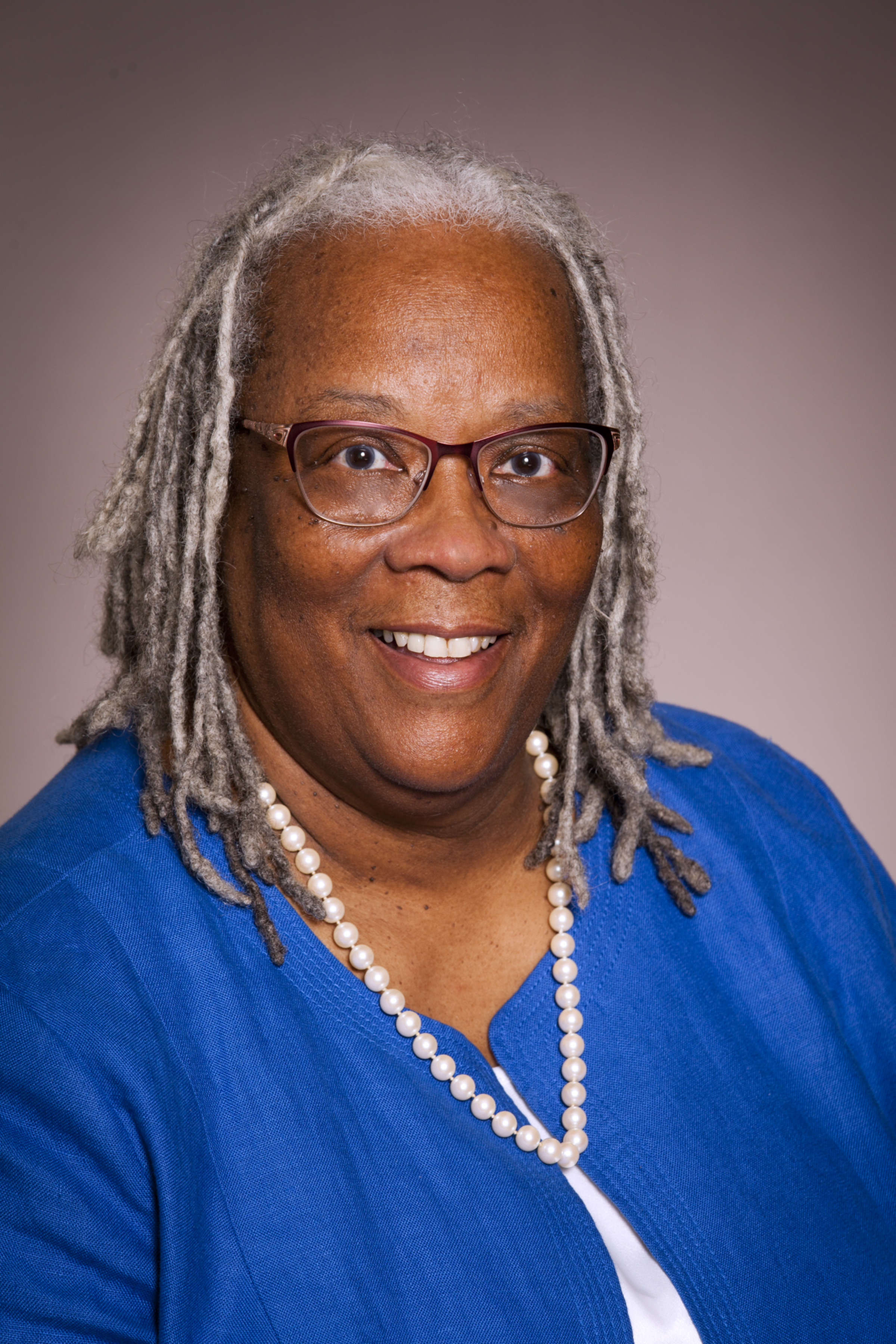Healthy Nurse, Healthy Nation™ Blog - Spirituality And The Nursing Profession
Published
By Jill B. Hamilton, PhD, RN, FAAN and Nakia C. Best, PhD, RN


Being a nurse is rewarding. We show compassion and empathy to patient and caregivers that are vulnerable and need our help to make difficult decisions. We serve as patient advocates. Nurses are also leaders and researchers that have a profound effect on how health care is delivered. No matter the role or position, nurses show up every day to provide the best quality care possible.
Giving so much of ourselves can be stressful and harmful to our health. With more than 80% of nurses that responded to the 2016 American Nurses Association Health Risk Appraisal stating they were at a “significant level of stress,” using strategies to decrease stress is pivotal to the health of nurses. So, how can nurses reduce stress? Jill B. Hamilton, PhD, RN, FAAN and Nakia C. Best, PhD, RN recommend nurses use spirituality as an impactful way to reduce stress.
Spirituality might enable nurses to reduce stress levels in several ways. For example, spirituality might reduce stress among nurses through a positive self-image, through religious songs, Bible verses or religious text, and prayers that self-nourish, through harmonious social relationships, and through shared similar experiences that support and uplift each other, our patients and their family members that we care for.
Positive Self-Image
When nurses are spiritually-grounded with a belief in a Divine entity, a healthy sense of self comes from this association which can result in the nurse feeling worthy and of value. An association with the presence of a powerful entity may enable nurses to manage or cope with vulnerabilities and to feel secure. In research with cancer patients, spirituality enabled these individuals to achieve and maintain a healthy self-identity. In a spiritual sense, when the individual is able to view themselves as a child of God, they are able to view their inherent self-worth and value positively. When cancer patients perceived themselves as a child of God, they felt important, loved, and cared for. This “child of God” perspective encouraged a positive self-image even in the midst of suffering or in the gravest of situations for which the cancer patient was not able to exercise any control. Once there is a healthy sense of self, the cancer patient as well as the nurse is able to make conscious deliberate choices to strive for harmony and integration within themselves, others, and the world. Specifically, when there is harmony and integration within one’s self and others in the world, the cancer patient is optimistic and able to engage in supportive social relationships with family and friends.
Self- Nourishing with Religious Songs, Religious Text, or Prayers
Spirituality is also self-nourishing. In research conducted in communities among individuals encountering stressful life events, a reliance on religious songs, reading and reciting religious text, and prayers were strategies used for strength and comfort. Religious songs and reading or reciting religious text transforms the mood of the user from negative to positive, optimistic, and hopeful; from an earthly world of suffering to a future world of peace and serenity; from weakness to strength and power. Reading religious text offers stories that provide evidence of surviving the impossible and of God’s ability to protect, strengthen, and heal. Although prayers are a means of communicating needs during illness, prayers are also empowering. Through prayers, nurses have access to a confidant with whom they are able share their innermost fears and worries related to stressful events at work, the care of patients, or even their own personal challenges.
Seeking Harmony in One’s Environment through Social Relationships
Thirdly, spirituality might enable the nurse to live in harmony with others. Survival of all human life is dependent on our ability to live interdependently with others. Harmonious relationships among nurses, other healthcare providers, patients, and their family members might occur as a result of sharing meaningful experiences that transcend different faiths, fears, or prejudices that serve to divide and cause conflict. Harmonious social relationships are enhanced through sharing similar experiences and if those shared experiences are sustained over time, differences among nurses, patients, and others might be eliminated.
Optimism/Finding Purpose
Finally, spirituality might enable the nurse to find purpose in their role of providing optimal patient care. Spirituality might inspire the nurse to be optimistic and find the good even in stressful situations. Similar to cancer patients, nurses might find benefit through sharing their stories of overcoming stressful situations through sharing their own personal stories of the good that came from the aftermath of the worst of situations. For example, cancer patients frequently report that a cancer diagnosis changed their life through the ability to see life through a new lens and their ability to use their illness to help others. Similarly, family members have reported that a serious, life-threatening illness served to heal troubled and strained relationships.
Regardless of our individual beliefs, religious affiliations, or faith traditions, spirituality might be of benefit to the nurse in coping with stressful situations. Spirituality encourages us all to love life and each other.
References
Fluker, W. E. (1998). A Strange Freedom: The Best of Howard Thurman on Religious and Public Life. Boston: Beacon Press.
Hamilton, J.B., Kweon, L, Brock, L.B., &Moore, A.D. (2019). The Use of Prayer During Life-Threatening Illness: A Connectedness to God, Inner-Self, and Others [published online ahead of print, 2019 Apr 4]. Journal of Religion & Health. 2019;10.1007/s10943-019-00809-7. doi:10.1007/s10943-019-00809-7
Hamilton, J. B., Moore, A. D., Johnson, K. A., & Koenig, H. G. (2013). Reading the Bible for guidance, comfort, and strength during stressful life events. Nursing Research, 62(3), 178-184. doi:10.1097/NNR.0b013e31828fc81
Hamilton, J. B., Sandelowski, M., Moore, A. D., Agarwal, M., & Koenig, H. G. (2013). "You need a song to bring you through": the use of religious songs to manage stressful life events. Gerontologist, 53(1), 26-38. doi:10.1093/geront/gns064
Hamilton, J. B., Worthy, V. C., Kurtz, M. J., Cudjoe, J., & Johnstone, P. A. (2016). Using Religious Songs as an Integrative and Complementary Therapy for the Management of Psychological Symptoms Among African American Cancer Survivors. Cancer Nursing. doi:10.1097/ncc.0000000000000335
Thurman, H. (1963). Disciplines of the Spirit. New York: Harper & Row Publishers.
Thurman, H. (1972). The Creative Encounter. Richmond, IN: Friends United Press.
Thurman, H. (1999). Deep River and The Negro Spiritual Speaks of Life and Death. Richmond, IN: Friends United Press.
Jill B Hamilton, PhD, RN, FAAN, is an Associate Professor at Emory University’s Nell Hodgson Woodruff School of Nursing and a Faculty Scholar in the Duke University Center for Spirituality, Theology & Health. Dr. Hamilton is a member of the Cancer Prevention and Control Program for Winship Cancer Institute, and is the Vice President of the American Association for Cancer Education, 2019-2020.
Nakia C. Best, PhD, RN, is an Assistant Professor at Sue & Bill Gross School of Nursing at The University of California, Irvine.
Reviewed 2/17/22


Being a nurse is rewarding. We show compassion and empathy to patient and caregivers that are vulnerable and need our help to make difficult decisions. We serve as patient advocates. Nurses are also leaders and researchers that have a profound effect on how health care is delivered. No matter the role or position, nurses show up every day to provide the best quality care possible.
Giving so much of ourselves can be stressful and harmful to our health. With more than 80% of nurses that responded to the 2016 American Nurses Association Health Risk Appraisal stating they were at a “significant level of stress,” using strategies to decrease stress is pivotal to the health of nurses. So, how can nurses reduce stress? Jill B. Hamilton, PhD, RN, FAAN and Nakia C. Best, PhD, RN recommend nurses use spirituality as an impactful way to reduce stress.
Spirituality might enable nurses to reduce stress levels in several ways. For example, spirituality might reduce stress among nurses through a positive self-image, through religious songs, Bible verses or religious text, and prayers that self-nourish, through harmonious social relationships, and through shared similar experiences that support and uplift each other, our patients and their family members that we care for.
Positive Self-Image
When nurses are spiritually-grounded with a belief in a Divine entity, a healthy sense of self comes from this association which can result in the nurse feeling worthy and of value. An association with the presence of a powerful entity may enable nurses to manage or cope with vulnerabilities and to feel secure. In research with cancer patients, spirituality enabled these individuals to achieve and maintain a healthy self-identity. In a spiritual sense, when the individual is able to view themselves as a child of God, they are able to view their inherent self-worth and value positively. When cancer patients perceived themselves as a child of God, they felt important, loved, and cared for. This “child of God” perspective encouraged a positive self-image even in the midst of suffering or in the gravest of situations for which the cancer patient was not able to exercise any control. Once there is a healthy sense of self, the cancer patient as well as the nurse is able to make conscious deliberate choices to strive for harmony and integration within themselves, others, and the world. Specifically, when there is harmony and integration within one’s self and others in the world, the cancer patient is optimistic and able to engage in supportive social relationships with family and friends.
Self- Nourishing with Religious Songs, Religious Text, or Prayers
Spirituality is also self-nourishing. In research conducted in communities among individuals encountering stressful life events, a reliance on religious songs, reading and reciting religious text, and prayers were strategies used for strength and comfort. Religious songs and reading or reciting religious text transforms the mood of the user from negative to positive, optimistic, and hopeful; from an earthly world of suffering to a future world of peace and serenity; from weakness to strength and power. Reading religious text offers stories that provide evidence of surviving the impossible and of God’s ability to protect, strengthen, and heal. Although prayers are a means of communicating needs during illness, prayers are also empowering. Through prayers, nurses have access to a confidant with whom they are able share their innermost fears and worries related to stressful events at work, the care of patients, or even their own personal challenges.
Seeking Harmony in One’s Environment through Social Relationships
Thirdly, spirituality might enable the nurse to live in harmony with others. Survival of all human life is dependent on our ability to live interdependently with others. Harmonious relationships among nurses, other healthcare providers, patients, and their family members might occur as a result of sharing meaningful experiences that transcend different faiths, fears, or prejudices that serve to divide and cause conflict. Harmonious social relationships are enhanced through sharing similar experiences and if those shared experiences are sustained over time, differences among nurses, patients, and others might be eliminated.
Optimism/Finding Purpose
Finally, spirituality might enable the nurse to find purpose in their role of providing optimal patient care. Spirituality might inspire the nurse to be optimistic and find the good even in stressful situations. Similar to cancer patients, nurses might find benefit through sharing their stories of overcoming stressful situations through sharing their own personal stories of the good that came from the aftermath of the worst of situations. For example, cancer patients frequently report that a cancer diagnosis changed their life through the ability to see life through a new lens and their ability to use their illness to help others. Similarly, family members have reported that a serious, life-threatening illness served to heal troubled and strained relationships.
Regardless of our individual beliefs, religious affiliations, or faith traditions, spirituality might be of benefit to the nurse in coping with stressful situations. Spirituality encourages us all to love life and each other.
References
Fluker, W. E. (1998). A Strange Freedom: The Best of Howard Thurman on Religious and Public Life. Boston: Beacon Press.
Hamilton, J.B., Kweon, L, Brock, L.B., &Moore, A.D. (2019). The Use of Prayer During Life-Threatening Illness: A Connectedness to God, Inner-Self, and Others [published online ahead of print, 2019 Apr 4]. Journal of Religion & Health. 2019;10.1007/s10943-019-00809-7. doi:10.1007/s10943-019-00809-7
Hamilton, J. B., Moore, A. D., Johnson, K. A., & Koenig, H. G. (2013). Reading the Bible for guidance, comfort, and strength during stressful life events. Nursing Research, 62(3), 178-184. doi:10.1097/NNR.0b013e31828fc81
Hamilton, J. B., Sandelowski, M., Moore, A. D., Agarwal, M., & Koenig, H. G. (2013). "You need a song to bring you through": the use of religious songs to manage stressful life events. Gerontologist, 53(1), 26-38. doi:10.1093/geront/gns064
Hamilton, J. B., Worthy, V. C., Kurtz, M. J., Cudjoe, J., & Johnstone, P. A. (2016). Using Religious Songs as an Integrative and Complementary Therapy for the Management of Psychological Symptoms Among African American Cancer Survivors. Cancer Nursing. doi:10.1097/ncc.0000000000000335
Thurman, H. (1963). Disciplines of the Spirit. New York: Harper & Row Publishers.
Thurman, H. (1972). The Creative Encounter. Richmond, IN: Friends United Press.
Thurman, H. (1999). Deep River and The Negro Spiritual Speaks of Life and Death. Richmond, IN: Friends United Press.
Jill B Hamilton, PhD, RN, FAAN, is an Associate Professor at Emory University’s Nell Hodgson Woodruff School of Nursing and a Faculty Scholar in the Duke University Center for Spirituality, Theology & Health. Dr. Hamilton is a member of the Cancer Prevention and Control Program for Winship Cancer Institute, and is the Vice President of the American Association for Cancer Education, 2019-2020.
Nakia C. Best, PhD, RN, is an Assistant Professor at Sue & Bill Gross School of Nursing at The University of California, Irvine.
Reviewed 2/17/22
Blog Quality of Life
02/17/2020 9:43am CST



Post a Comment or Question